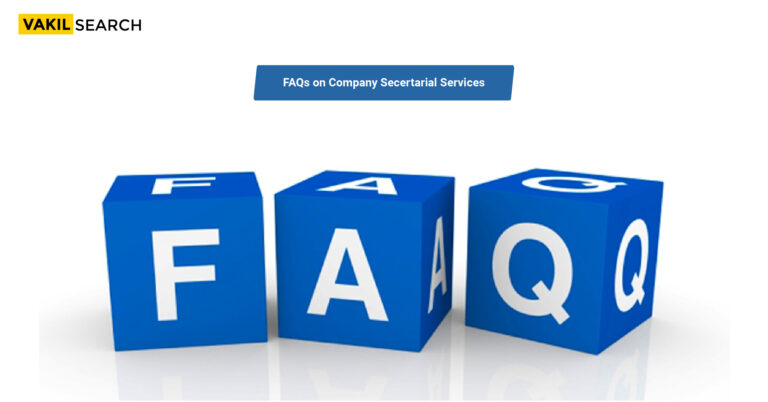A lot of people are confused between company & personal secretary so, if you are one of them then you've come to the right place!
A company secretary is a high-level administrative post that a Director appoints. In comparison to a private secretary, it is very different. The company secretary’s responsibilities are crucial to the firm’s steady growth and are carried out in a very professional manner. In this article, we will discuss the difference between a company secretary vs personal secretary.
Company Secretary
In a nutshell, the company secretary is a senior executive who supports corporate governance, compliance, and legality. This individual has received professional training and recognition on a global scale.
Positions like assistant company secretaries have even been formed recently due to the rising need for company secretaries in businesses.
Duties of Company Secretary
The Company Secretarial Service is to make sure that the organization’s administrative compliance is legal. It has a wide range of duties such as managing administrative, governmental, accounting, and other domains.
And it plays a significant part in helping the business execute sound policies.
Company secretary duties, for example, include:
- Create the company’s statutory accounting records; Keep all necessary statutory records updated;
- Scheduling and planning the annual general meeting or board of directors’ meeting;
- Transfer and registration of shares;
- Liaise with legal counsel, regulatory agencies, and auditing departments;
- Inform the public of any changes to the organization’s details;
- The creation and delivery of yearly reports, etc.
- Take the necessary steps to abide by the applicable legal requirements. Keeping an eye on corporate governance.
For more information you can contact Vakilsearch, their team will solve all your queries.
Company Secretary VS Personal Secretary
Personal and company secretaries are not the same thing. Initially, a company secretary is a statutory job that all limited companies must have;
The requirements of the company determine whether the personal secretary is a statutory post.
The company secretary’s duties mostly revolve around upholding the law compliances. also, the operational compliance of the company. They also include dealing with business rules.
Personal business and day-to-day administration are handled by the personal secretary. who is a direct employee of the CEO or director.
The main difference between a Company secretary and a personal secretary is
Company secretary vs Personal secretary
| Basis | Personal Secretary | Company Secretary |
| Meaning | A personal secretary can be appointed by a busy person to assist him/her tasks. | An individual appointed by the directors to carry out duties in a Company. |
| Appointment | It is appointed by a busy person or professional. | By order of the Board of Directors, a company secretary is appointed. |
| Qualification | Anyone can become a personal secretary. | Only CS qualified can become a company secretary. |
| Legal Status | A personal secretary has no legal status. | The company secretary possesses legal status. |
| Powers | It has limited powers as given by the employer. | It has statutory and managerial powers. |
| Purpose | to help a busy person with his daily tasks | to support the Board of Directors’ decision-making and executive actions. |
| Position | An employee’s employer’s assistant is the personal secretary. | The company secretary is one of the members of the Key Managerial Personnel. |
These are all the differences between company secretary vs personal secretary.
Benefits of having a Company Secretary
In addition to being a statutory position, the company secretary is a crucial position for the steady growth of the business. The owner and directors can focus on business development,
Save a ton of time by hiring a professional secretarial service to handle relevant tasks, and enjoy the advantages listed below.
-
Provide Professional Legal and Tax Advice
The company secretary plays a crucial role in managing the business. They have qualifications that are internationally recognized,
Are knowledgeable about the laws that apply to businesses and stay up to date on any changes to the rules and regulations. The company secretary can help the company avoid legal action
that might harm it or put it at a disadvantage while also streamlining corporate governance. Several rules must be followed by businesses, and these rules may be updated and modified over time as technology advances.
Thus, it is even more crucial to consult the secretary for legal advice in a timely manner to avoid penalties and other legal ramifications. Additionally, if you decide to use the services of an accounting firm or a secretarial service,
Also, to be knowledgeable about company law, they can also offer professional advice on tax-related matters.
Communicate with Government Departments
The company secretary is in charge of handling the pertinent statutory documents and serving as a “point of contact” for government departments to promote direct communication.
The company secretary will also keep up with government directives and ensure proper compliance.
Additionally, it can shield the company’s management from legal liability for breaking rules. While a personal secretary will be in charge of setting up meetings,
Fielding phone calls, and doing daily administrative activities.
A company secretary has several significant secretarial responsibilities within the organization.
The filing of annual filings with Companies House is arguably the most crucial activity.
The main distinctions between the two are their responsibilities, salary
What they must complete, how they must report on their positions, etc.
Improve transparency and Business Reputation
They all can be successfully avoided when they are checked by the company secretary.
- Violations,
- Corruption,
- Fraud,
- And misappropriation
With the independent status of the secretary company, the firm’s transparency may be increased,
A conflict of interest arising from the director serving as the secretary can be avoided with the help of a company secretary. Also, the management’s reputation can be impacted.
Conclusion
We hope after reading the information provided above, one has understood the difference between a Company secretary vs a personal secretary. In a firm, the functions of the company secretary and others vary. Personal secretaries can be hired by anyone, while company secretaries must have a CS degree.
FAQs
What are the key tasks of a personal secretary?
A personal secretary is responsible for managing an executive's schedule, handling correspondence, organising meetings, and ensuring effective communication. They act as a gatekeeper, managing administrative tasks and facilitating smooth day-to-day operations for their superior.
What are the primary responsibilities of a company secretary?
A company secretary plays a pivotal role in corporate governance. Their responsibilities include ensuring compliance with legal and regulatory requirements, maintaining corporate records, advising the board on governance matters, and facilitating communication between the company and its stakeholders.
Does a personal secretary deal with legal and regulatory matters?
Generally, personal secretaries focus on administrative tasks and may not be directly involved in legal or regulatory matters. Their role centres around organisational support. In contrast, company secretaries are specifically tasked with legal compliance and governance within a corporate setting.
How does a personal secretary contribute to an organisation?
A personal secretary contributes by efficiently managing an executive's schedule, handling administrative tasks, and facilitating communication. Their organisational skills and attention to detail streamline operations, allowing the executive to focus on strategic matters, ultimately enhancing the overall productivity and effectiveness of the organisation.
What qualifications or skills are required to become a personal secretary?
To become a personal secretary, one typically needs strong organisational skills, effective communication abilities, proficiency in office software, and attention to detail. Formal education in business administration or secretarial studies can be beneficial, and experience in administrative roles is often preferred.
Are company secretaries required to have legal expertise?
Yes, company secretaries are typically required to have legal expertise. They need to interpret and ensure compliance with complex legal and regulatory frameworks. This includes corporate law, governance guidelines, and industry-specific regulations, making legal knowledge an integral part of their skill set.
Can a personal secretary transition to becoming a company secretary?
Yes, a personal secretary can transition to becoming a company secretary with additional qualifications. Pursuing relevant certifications, such as those offered by professional bodies like the Institute of Company Secretaries of India (ICSI), can equip individuals with the necessary legal and governance knowledge for this transition.
Are the roles of personal secretaries and company secretaries interchangeable?
No, the roles of personal secretaries and company secretaries are not interchangeable. Personal secretaries primarily focus on administrative support for individuals, while company secretaries specialise in legal compliance, corporate governance, and regulatory matters within an organisational context.
Do personal secretaries and company secretaries work in different industries?
Personal secretaries can work in various industries, supporting executives in diverse sectors. On the other hand, company secretaries typically work in corporate environments, spanning industries such as finance, legal services, and business management, where adherence to governance and regulatory standards is paramount.










